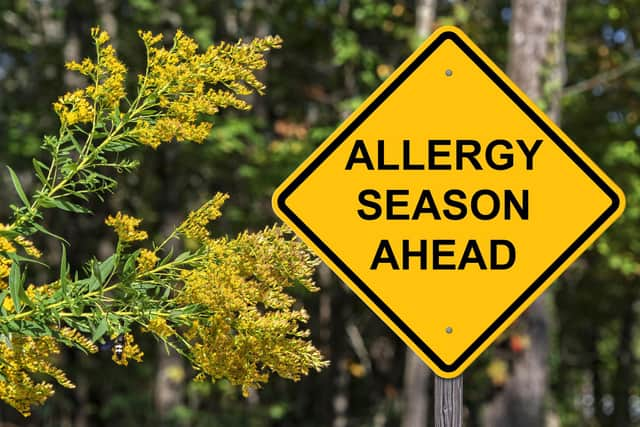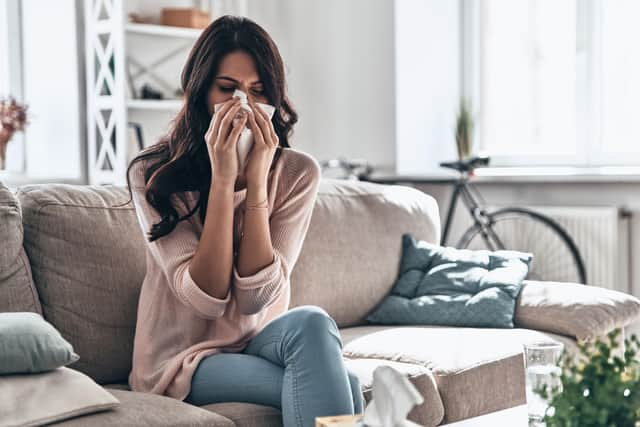Expert tips for Wigan hay fever sufferers: How to keep pollen season symptoms at bay
and live on Freeview channel 276
Unfortunately, evidence suggests that hay fever may be getting worse, with the pollen season becoming increasingly erratic due to climate change. If you suffer from hay fever, you may have noticed your symptoms getting worse in recent years, possibly even starting earlier in the year.
To minimise disruption to your daily life during hay fever season, Chris Newbury (BPharm IP), a pharmacist from the online pharmacy The Independent Pharmacy, offers tips for dealing with an extended and potentially more symptom-heavy hay fever season.
When does hay fever season start?


Advertisement
Hide AdAdvertisement
Hide AdIn the UK, pollen season typically begins around March and lasts until September — with tree pollen usually arriving in mid-to-late-March — though the Met Office suggests that climate change may be extending the pollen season so that it starts earlier, lasts longer, and brings with it an increased concentration of pollen.
This could also mean that hay fever sufferers experience a “double-hit” of symptoms as pollen seasons overlap.
Tips for keeping hay fever at bay ...
While many hay fever sufferers will despair at the prospect of the pollen season becoming increasingly unpredictable, lasting longer, and introducing more severe allergic symptoms, Chris recommends a number of measures to minimise disruption to your daily life when pollen counts begin to rise.


Take preemptive measures
First, take preemptive measures by starting hay fever treatment one or two weeks before your symptoms typically kick in. By doing so, you may prevent an allergic reaction before it starts and limit the severity of your symptoms.
Check the pollen count each day
Advertisement
Hide AdAdvertisement
Hide AdCheck the pollen count, which tends to be higher in the morning and drops off in the afternoon. The pollen count is considered high when it exceeds 50, which refers to the amount of pollen per cubic metre. If the count is high, take extra precautions such as limiting the time you spend outside or taking preventative measures.
Take your clothes off and wash them after you’ve been outside
When you come home after spending time outside, remove your outdoor clothes and take a shower straight away to remove any pollen particles that may be clinging to you. This will prevent you from transferring pollen into your house via your clothes or your hair. And wash your clothes.
Beware if you suffer from asthma
If you have asthma, hay fever can cause your airways to become more inflamed. Be extra cautious around hay fever season, limit your time spent outside on high pollen count days, carry your inhaler with you at all times, and speak to your doctor if you’re worried about worsening symptoms.
Be prepared
Stock up on treatments, such as antihistamine tablets, nasal sprays, and eye drops. Combining two or more of these treatments will provide more complete relief from your symptoms, particularly if you suffer from itchy eyes as well as a blocked or runny nose, sneezing, and coughing.
Advertisement
Hide AdAdvertisement
Hide AdWith climate change threatening to extend the pollen season for hay fever sufferers, it’s important to understand how to manage hay fever symptoms. If you’re taking the right preventative and reactive measures, hay fever shouldn’t derail your spring and summer plans.
Is there anything else I can do?
Sarah Hastings, a vitamin expert at vitamin and supplement brand Chewwies, believes that there are five foods you can incorporate into your diet to help relieve symptoms: Root vegetables, citrus fruits, ginger kale and salmon.